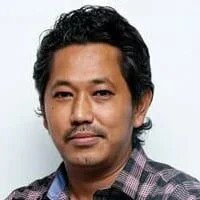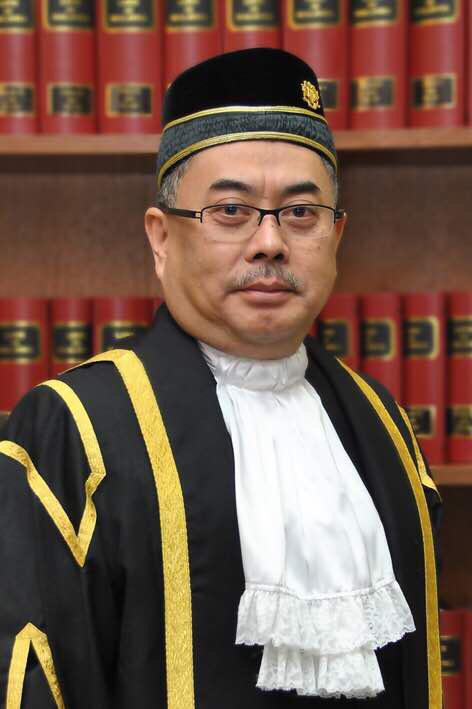
Opinion: Wan Ahmad Farid is the new CJ: So does this solve the issue of Judicial Integrity and independence?
21 Jul 2025 • 9:00 AM MYT

TheRealNehruism
Writer. Seeker. Teacher

Image credit : JAC
Justice Wan Ahmad Farid Wan Salleh has been appointed as Malaysia’s new Chief Justice, taking over the post from Tengku Maimun Tuan Mat, who retired earlier this month.
This, I suppose, is meant to close the issue of judicial independence and integrity in the country, which has been raging for the last couple of weeks.
Now, over the past few weeks, we’ve heard a lot about “judicial integrity, judicial integrity, judicial integrity”… but not many of us really understand what that actually means.
So let me explain it this way — the judiciary is an institution. And unlike a company or a business, an institution exists to serve a purpose. It serves this purpose by upholding certain core values, principles, and ideals for society.
A business, on the other hand, is simply there to make money. Regardless of what its corporate communications try to say, it doesn’t serve any greater purpose other than itself — it exists, like a private citizen, to serve its own interests and prospects.
A society or a nation didn’t come into being randomly. It was born because certain conditions made it possible — and one of these conditions is the presence of shared ideals, principles, and values.
These values, ideals, and principles are embedded in the foundation of the nation — namely, the Constitution — and they are upheld by the four pillars of the nation: Parliament, the Executive, the Monarchy, and yes, the Judiciary.
It is because these four pillars uphold certain shared values and principles — in service of a greater purpose — that they are called “institutions.”
Now, how does an institution uphold those values, ideals, and principles?
It does so by maintaining its “integrity.” This means ensuring that all its members are aware of, and dedicated to, protecting and upholding those values and ideals.
An institution like the judiciary, police, or armed forces can only be said to have “integrity” if there is a high degree of consistency in how its members speak and act.
If a police officer in Perlis behaves one way and another in Sabah behaves completely differently, then the police as an institution lacks integrity. Institutional integrity means that no matter where you are — Sabah, Kelantan, or Johor — the police conduct themselves in roughly the same manner.
The same applies to the judiciary, or any institution.
How is institutional integrity preserved and maintained?
It is preserved by ensuring that all members are trained, indoctrinated, and conditioned with the values, ethos, principles, and ideals of the institution.
You see, we don’t listen to a judge or a police officer because they are special as individuals. We listen to them because they represent an institution. On their own, they are just people. But they hold powers beyond the average citizen because they speak for the institution.
When they command or instruct us, it is not seen as coming from them personally — it is seen as coming from the institution they represent. And we trust that they speak for the institution because we believe its members have been trained to act according to a shared code of values.
To ensure that happens, the institution needs “independence” — the ability to train, evaluate, promote, and discipline its own members based on how well they live up to those values and principles.
An institution is only independent if its own members — and not outsiders — are responsible for judging, promoting, and disciplining its ranks.
That is why, for example, the Pope is chosen by a College of Cardinals, not by popular vote. If people who aren’t even Catholic got to decide who the next Pope should be, then the Church would no longer be a meaningful institution — it would lose the very values and principles it is meant to uphold.
How can values and ideals be passed from one generation to the next, if anyone and everyone can interfere in how an institution is run?
Now, the reason many people were chanting “judicial integrity, judicial integrity, judicial integrity ....” over the past few weeks is because that integrity has been called into question.
After Tengku Maimun retired as Chief Justice, there were signs — or allegations — that the Prime Minister may have interfered in the independence of the judiciary by promoting judges based on political preference, instead of allowing the judiciary itself to determine who is best suited to lead the institution.
This concern arises because of how the Judicial Appointments Committee (JAC) is structured. It has nine members: the top four judges, including the Chief Justice (who chairs the JAC), and five people appointed by the Prime Minister.
Because five out of nine members are appointed by the PM, it is seen by critics as giving the Prime Minister effective control over judicial appointments.
Things came to a head following Tengku Maimun’s retirement, when it was alleged that the candidate chosen by the JAC under her leadership was sidelined — and that another judge, whose credibility Tengku Maimun herself had reportedly questioned (according to leaked meeting minutes), might be promoted instead.
After some brouhaha, the matter appears to have been settled — at least on the surface — with the appointment of Justice Wan Ahmad Farid Wan Salleh as the new Chief Justice.
So how does this appointment “close” the matter?
Well, it probably closes it in the sense that the issue of who will be the next top judge has been answered, without a controversial figure being appointed.
But does it settle the deeper concern raised in this article — about institutional integrity and independence?
Does it reassure us that the judiciary is truly independent, and capable of running its own affairs in a way that ensures its members are properly trained, conditioned, and committed to upholding the ideals passed down from generation to generation?
To that, all I can say is this:
The best way to live in Malaysia is to resign yourself to living with open endings.
If you need closure or resolution — this may not be the place for you.
***
How do the wankees choose their judges? How do the Poms?
No comments:
Post a Comment